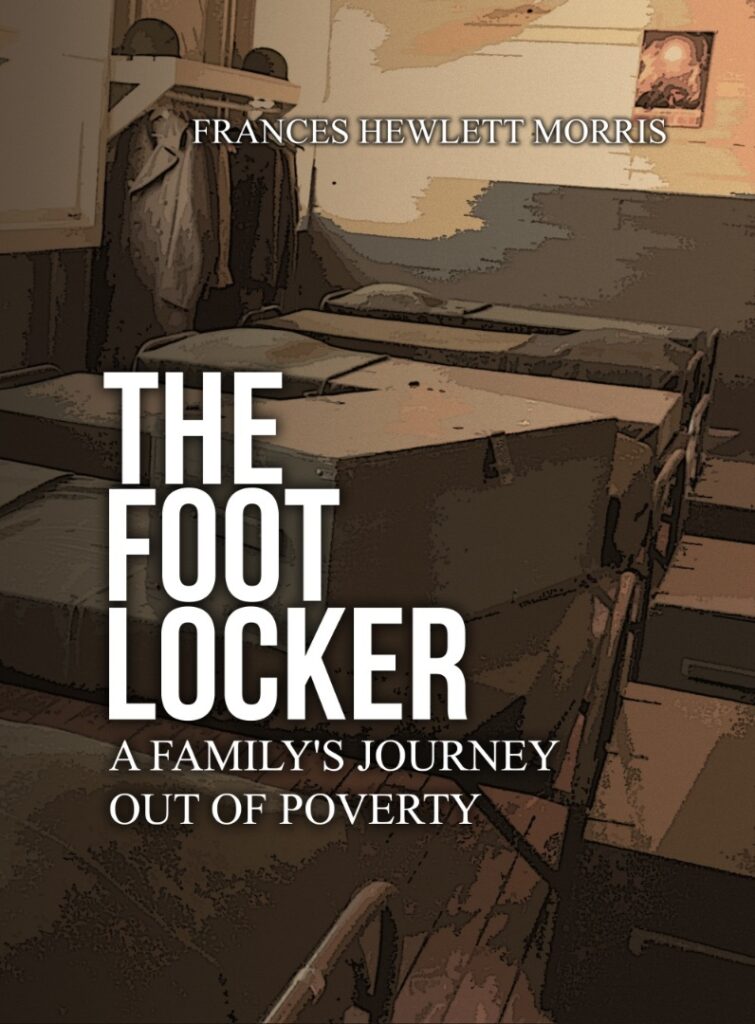I grew up in the South during legal segregation. My parents were not able to obtain meaningful employment because of racist Jim Crow laws. They worked on farms, picking and chopping cotton. After the cotton season was over, Dad worked as a day laborer and MaDear worked in private homes. They worked whatever odd jobs they could find to provide for their five children.
We lived in abject poverty for the first fourteen and a half years of my life. I was the youngest of my siblings. By the time I was seven, we had lived in four shacks. There was no electricity or indoor plumbing. We attended segregated schools, drank from water fountains marked “colored,” went to the zoo or the “colored” fair on designated days, entered buildings through the back door, rode on the back of the bus, waiting in “colored” waiting rooms at the doctor’s office, and the list goes on into eternity. Like all Black people, we were trying to survive.
All Black people in the South were legally segregated. A person’s socioeconomic or educational status did not matter. What mattered was a visible mark called skin color. Black people traveling from Northern, West, or Midwestern states knew this. Most of them migrated to these states as a result of the Great Migration. They moved to escape the societal concerns of the South and for better economic opportunities but were met with a different type of racism.
They escaped to large cities that relegated them to self-contained neighborhoods in the ghetto areas of town. They experienced a different type of racism. Most of the available work in the cities was industrial and they had to learn new trades. Generally, they received lower wages than white Americans. Dad was born in Mississippi but his family migrated to Chicago when he was a young boy. As an adult, he worked as a brick-layer but soon lost his job. He moved back South in his early thirties.
He worked on his uncle’s farm and met my mother. She lived with her parents on the next farm over. Her parents were tenant farmers and rented their land that was filled with stumps from timber that was previously cut. My maternal grandparents had ten children who helped work the land. Seven of the ten were boys. They learned how to cultivate the land and produce huge crops of cotton and vegetables at an early age. Eventually, my grandparents lost the farm because of cheating by the white landowner.
After marrying MaDear, Dad had to leave for military service. He served in the Army during WWII and came home on furloughs. During training, he was injured and spent six weeks in a military hospital in Arizona. After discharge, he returned home to his wife and baby son. He wanted to buy a house for his new family but was denied G.I. benefits and service connection for his disability. Southern Democrats reportedly feared returning Black veterans would cause public sympathy and advocate against Jim Crow laws.
During the drafting of the G.I. bill, the chair of the House Veterans Committee, Rep. John Rankin, insisted that the program be administered by individual states instead of the federal government. He was a long-term congressman from Mississippi and used his power to support segregation and deny federal benefits programs to Black people. He was known to be an ardent segregationist.
Dad and MaDear made a decision to move from Mississippi to Tennessee after the birth of my 4th sibling. In Mississippi, Black children were expected to work in the cotton fields during cotton season. After completing the 6th grade, the landowners expected them to work and threatened their parents with eviction or mob violence if their parents refused. Tennessee had a compulsory school attendance law. Black children were not expected to work in the cotton fields during times school was in session. This didn’t prevent white land owners from trying to convince their parents to work in the cotton fields, but Dad knew the law.
Our Christian parents expected their five children to go to school, learn, and respect others. They believed education and knowledge were keys to getting out of poverty and remaining out. They had short term and long term goals for us. We didn’t have electricity but was expected to study by the light of the coal-oil lamp. We didn’t have indoor plumbing but was expected to help keep our shack clean. There were many days we didn’t have enough food to eat but we survived with the help of caring neighbors who had just a little more.
With the nurturing guidance of our parents, mentors, teachers, and neighbors, we achieved. The road was long and crooked but we made it! I chose to write about my family’s journey out of poverty to inspire others.
My books, The Tangled Web: A little girl’s struggle to overcome racism and poverty and The Footlocker: A Family’s Journey Out Of Poverty, is available on Amazon.
Francie Mae. February 23, 2023.
